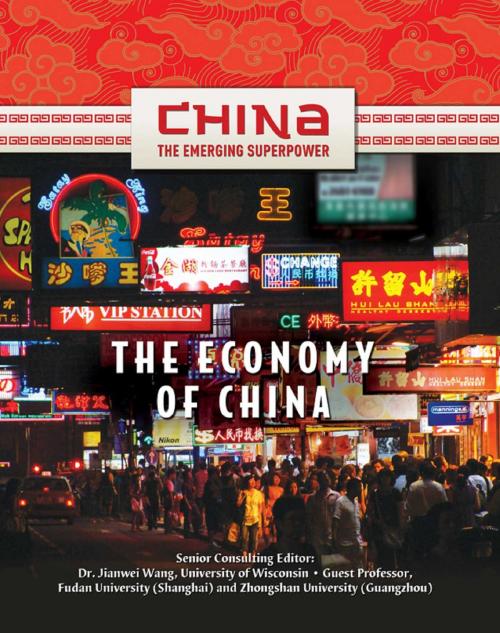The Economy of China
Kids, People and Places, History, Ancient Civilizations, School Tools, Social Science| Author: | Shu Shin Luh | ISBN: | 9781422294468 |
| Publisher: | Mason Crest | Publication: | September 2, 2014 |
| Imprint: | Mason Crest | Language: | English |
| Author: | Shu Shin Luh |
| ISBN: | 9781422294468 |
| Publisher: | Mason Crest |
| Publication: | September 2, 2014 |
| Imprint: | Mason Crest |
| Language: | English |
What would China's revolutionary leader, Mao Zedong, think if he were alive today? Mao's Chinese Communist Party continues to hold a monopoly on political power, and at its core China remains a developing nation. But in many respects, today's China bears little resemblance to the country that emerged under Mao's leadership after 1949. Most important, today's People's Republic of China is Communist in name only. Rapid economic liberalization has brought capitalism, and unprecedented prosperity, to the world's most populous country. Farmers, once the backbone of China's economy, are taking a backseat to the entrepreneurs who make millions exporting low-cost, sophisticated computer chips and flat-screen televisions to the rest of the world. The sleeping giant, as one prominent economist described it, has awakened, and the rest of the world can no longer ignore its presence and its potential. How did this transformation come about? This book takes an in-depth look at that question and examines the future prospects for China in the global economy.
What would China's revolutionary leader, Mao Zedong, think if he were alive today? Mao's Chinese Communist Party continues to hold a monopoly on political power, and at its core China remains a developing nation. But in many respects, today's China bears little resemblance to the country that emerged under Mao's leadership after 1949. Most important, today's People's Republic of China is Communist in name only. Rapid economic liberalization has brought capitalism, and unprecedented prosperity, to the world's most populous country. Farmers, once the backbone of China's economy, are taking a backseat to the entrepreneurs who make millions exporting low-cost, sophisticated computer chips and flat-screen televisions to the rest of the world. The sleeping giant, as one prominent economist described it, has awakened, and the rest of the world can no longer ignore its presence and its potential. How did this transformation come about? This book takes an in-depth look at that question and examines the future prospects for China in the global economy.















